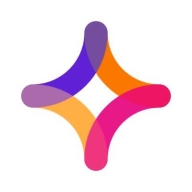

Oracle Data Integrator and Jitterbit Harmony are leading data integration platforms. Jitterbit Harmony has an advantage in user satisfaction due to its flexibility and affordability, making it a preferable choice for many despite Oracle Data Integrator's robust Oracle-centered capabilities.
Features: Oracle Data Integrator excels with comprehensive data transformation tools, seamless Oracle ecosystem integration, and an ELT architecture that leverages the power of target databases, making it ideal for Oracle-heavy environments. Jitterbit Harmony stands out with intuitive API management, a low-code development environment, and adaptability across various platforms, which lowers the technical barrier for users.
Room for Improvement: For Oracle Data Integrator, improvements could be made in reducing the complexity of its deployment process, enhancing support for non-Oracle environments, and simplifying its user interface. Jitterbit Harmony could improve on expanding its pre-built connectors, enhancing advanced data transformation capabilities, and strengthening its support for non-cloud environments.
Ease of Deployment and Customer Service: Jitterbit Harmony offers straightforward cloud-based deployment with minimal downtime and is praised for exceptional support services. Oracle Data Integrator requires a more involved deployment, suited to larger Oracle-centric infrastructures, potentially increasing setup time but allowing for complex and large-scale operations.
Pricing and ROI: Oracle Data Integrator involves higher upfront costs and a steeper learning curve, providing value in Oracle-specific settings. Jitterbit Harmony's pricing model is cost-effective, offering a quicker return on investment, particularly appealing to smaller businesses or those with budget constraints.
The technical support of Oracle is very good; they support the Oracle Data Integrator (ODI) solution effectively.
I can get solutions quickly, and any tickets I submit to Oracle are responded to and resolved rapidly.
The scalability and the ability to handle multiple workloads of several parallel ETL jobs could use improvement.
In terms of performance stability, I have not experienced any downtimes, crashes, or performance issues with the Oracle Data Integrator (ODI).
Integrating AI with ODI that provides recommendations on how to fix those data quality issues after analyzing and profiling business data would be excellent.
If I use a source system like Oracle and a target system like Teradata, ODI will still run, but it struggles a bit with different infrastructures.
ODI is cheaper compared to Informatica PowerCenter and IBM DataStage.
The pricing aspect of Oracle Data Integrator (ODI) is reasonable; it brings significant value to the table.
The main benefits that Oracle Data Integrator (ODI) brings to the table include data quality, data completeness functionality, metadata management, and the reverse engineering feature, which allows integrating the metadata of diversified data sources with a single click.
Oracle Data Integrator (ODI) is powerful and strong if my system uses Oracle components for environments like OLTP, enterprise data warehouse, or data marts.
| Product | Market Share (%) |
|---|---|
| Oracle Data Integrator (ODI) | 3.5% |
| Jitterbit Harmony | 0.6% |
| Other | 95.9% |


| Company Size | Count |
|---|---|
| Small Business | 8 |
| Midsize Enterprise | 3 |
| Large Enterprise | 1 |
| Company Size | Count |
|---|---|
| Small Business | 25 |
| Midsize Enterprise | 12 |
| Large Enterprise | 43 |
Jitterbit Harmony offers an advanced integration platform that simplifies data transformation, helps users quickly connect apps, and automates workflows, streamlining complex business processes efficiently.
Designed to meet the high demands of modern businesses, Jitterbit Harmony enables seamless integration across cloud and on-premise environments. By leveraging its powerful tools and user-friendly design, users can accelerate innovation, reduce operational costs, and enhance productivity. It bridges the gap between traditional and emerging technologies, ensuring organizations can adapt quickly to market changes and remain competitive.
What are the key features of Jitterbit Harmony?Jitterbit Harmony finds its application across numerous industries, from enhancing data integration in the healthcare sector to optimizing supply chain logistics in manufacturing. It supports financial institutions by improving transaction processing and facilitates real-time data connectivity in retail environments, making it a versatile choice for diverse industries looking to innovate rapidly.
Oracle Data Integrator (ODI) is a data integration software solution that provides a unified infrastructure to streamline data and application integration projects. It uses a powerful design approach to data integration, which separates the declarative rules from the implementation details. The solution is based on a unique ELT (Extract Load Transform) architecture, eliminating the need for a standalone ETL server and proprietary engine.
Oracle Data Integrator Features
ODI has many valuable key features. Some of the most useful ones include:
Oracle Data Integrator Benefits
There are many benefits to implementing ODI. Some of the biggest advantages the solution offers include:
Reviews from Real Users
Below are some reviews and helpful feedback written by PeerSpot users currently using the Oracle Data Integrator (ODI) solution.
Brian D., Business Process and Strategy Specialist Advisor at NTTData, says, “The Knowledge Module (KM) is my favorite feature of ODI. This is where I learned how to use variables to make jobs dynamic. I took that knowledge and created a KM that would go into iTunes and pull the sales of eBooks. Making something that is reusable, like a KM, is important to not only reduce build time but also maintenance in the future.”
Ashok S., Applications Support Manager at a marketing services firm, mentions, "The most valuable features of ODI are the ease of development, you can have a template, and you can onboard transfer very quickly. There's a lot of knowledge modules available that we can use. If you want to connect, for example, a Sibyl, SQL, Oracle, or different products, we don't have to develop them from scratch. They are available, but if it's not, we can go into the marketplace and see if there's a connector there. Having the connector available reduces the amount of hard work needed. We only have to put the inputs and outputs. In some of the products, we use there is already integration available for ODI, which is helpful."
We monitor all Data Integration reviews to prevent fraudulent reviews and keep review quality high. We do not post reviews by company employees or direct competitors. We validate each review for authenticity via cross-reference with LinkedIn, and personal follow-up with the reviewer when necessary.